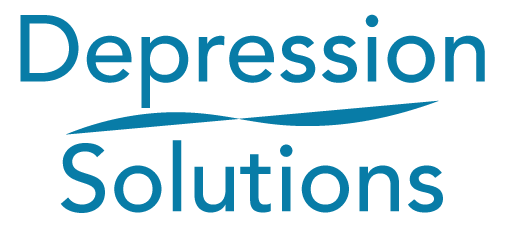
The following organizations are great resources for general information about major depressive disorder and treatment options as well as support groups, access to available mental health professionals and treatment centers and the latest research studies.
SAMHSA National Helpline is free, confidential, and open 24/7, 365 days a year. SAMHSA is part of the U.S. Department of Health and Human Services and is on a mission to reduce the impact of substance use and mental health concerns on American communities. The organization provides a wealth of services and information.
One of their most useful features is the mental health treatment services locator, which directs you to a mental health treatment facility in your area. You can even narrow your search by services or languages to best suit your specific needs.
Contact: 1-800-662-HELP (4357) – https://www.samhsa.gov/
National Alliance on Mental Illness (NAMI) is a great source of information on depression as well as other mental health conditions, including signs and symptoms, treatment options, up-to-date statistics, and advanced research. NAMI works on many initiatives and programs to provide intervention, treatment, and financial support by working with government entities to ensure that mental health is included in healthcare policies. The organization addresses various aspects of public policy with the goal of improving the lives of those affected by mental health issues.
Contact: 1-800-950-624 or text “NAMI” to 741741; https://www.nami.org/
The Anxiety and Depression Association of America (ADAA) maintains a large directory of mental health professionals, organized by location and speciality. It also provides quality, current, research-driven information on depression in the form of books, brochures, blogs, and webinars. ADAA is a multidisciplinary professional organization that supports mental health professionals who work on anxiety, depression, OCD, PTSD, and co-occurring disorders. It hosts an annual conference, as well as various industry events, and provides training, clinical fellow opportunities, peer consultations, and more to professionals. The organization’s goal is to improve patient care, build best practices, and implement evidence based treatments through scientific innovation.
Contact: https://adaa.org
If you or someone you know is experiencing severe depression or suicidal thoughts, you can call the national helpline for free, confidential support at any time. Expert counselors are available 24/7 to speak with you.
In addition to the helpline, the National Suicide Prevention Lifeline is actively involved in suicide prevention and crisis care. It offers a comprehensive list of therapists and support groups. It also offers additional resources, such as a basic safety plan which can be utilized by loved ones in an emergency situation. You can read stories of suicide survivors on the National Suicide Prevention Lifeline website, which can help inspire you to seek help.
Contact: 1-800-273-TALK (8255); https://suicidepreventionlifeline.org/
The American Psychological Association (APA) is a great resource to locate a therapist by name or location. There is also a database of more than five million records, as well as APA’s own journals, books, webinars, and articles on various aspects of psychology and mental health.
Contact: https://apa.org
The National Institute of Mental Health (NIMH) is America’s federal agency for mental health and one of the largest research organizations in the world committed to the treatment and prevention of mental disorders. It provides the most comprehensive, up-to-date information on medical studies and treatments, making it a great resource for those with depression.
You can learn about the medications and psychotherapies that help treat depression and even join a clinical trial through NIMH.
Contact: https://www.nimh.nih.gov
The CDC offers expert information and resources for prevention, management, and treatment of depression. It also shares helpful links to helplines, directories, and other beneficial organizations. The CDC provides a free mental health quiz to debunk the myths and eliminate the stigma around mental health.
The Depression and Bipolar Support Alliance offers support and education for those with mood disorders and has more than 600 support groups and 200 chapters. The peer-based, wellness-oriented support services are available 24/7 online.
Some of the most useful tools are the DBSA Wellness Wheel and Wellness Tracker, which focuses on nutrition, substance use, medications and symptoms, mood, and more. They also have an “Ask The Doc” clinical panel, DBSA podcast, informational newsletter, brochures, and videos. If you’re a parent of a child who has mood disorders, you can join the support community, Balanced Mind Parent Network (BMPN), to discuss treatment options and gain support from other parents who are sharing similar experiences.
Contact: https://www.dbsalliance.org/
The Mental Health America (MHA) organization helps advocate for mental health prevention, early identification, and intervention. It runs fundraisers for mental health programs, raises awareness of mental health through public education programs, and leads initiatives, programs, and interventions for those struggling with depression.
MHA has unique programs, such as Life on Campus for college students and the Back to School Toolkit for students and educators. Its initiatives include “May is Mental Health Month,” “BIPOC Mental Health Month,” and “IDONTMIND” which focuses on leading discussions around mental health, therapy, and asking for help.
MHA also has an interactive online space called Screening-to-Supports (S2S) for those wanting to take more control of their own mental health. The program includes referral information, mental health services, peer support, and do-it-yourself tools.
Every year, the MHA hosts the Mental Health America Annual Conference and produces The State of Mental Health in America Report, which details key statistics on mental health and psychiatric conditions. They also publish brochures and fact sheets on depression and other mental health issues.
Contact: https://mhanational.org
In recent years, mental health treatment has made remarkable progress with innovative therapies that bring hope and relief. One of the most promising advancements is Transcranial Magnetic Stimulation (TMS) therapy. If you’re looking for drug-free options to manage depression, TMS might be the solution you’ve been searching for.
TMS therapy is a non-invasive procedure that uses magnetic fields to stimulate nerve cells in the brain. It targets areas associated with mood regulation, helping to alleviate symptoms of depression. Unlike antidepressants that affect the entire body, TMS directly focuses on the brain and has fewer side effects.
TMS is ideal for those who haven’t found success with traditional treatments like medications or talk therapy. Speak with a mental health professional to determine if TMS fits into your treatment plan.
Call or Text: 988 (Available 24/7)
Confidential support for mental health crises.
Text: HOME to 741741
Free, 24/7 text-based support for crises.
Phone: 211
Offers mental health, crisis intervention, and community service referrals.
Phone: (407) 253-1900
Website: namigo.org
Provides education, support groups, and advocacy.
Phone: (407) 875-3700
Website: aspirehealthpartners.com
Outpatient therapy and crisis stabilization.
Phone: (407) 370-0111
Website: centralfloridabehavioral.com
Specialized programs for mood disorders.
Phone: (407) 281-7000
Website: universitybehavioral.com
Comprehensive mental health services.
Online counseling with licensed therapists via text, audio, or video. ($60–$90/week, financial aid available.)
Guided self-help using CBT, mood tracking, and peer support. (Free basic, premium $8.99/month or $53.99/year.)
Mindfulness app offering guided meditations and relaxation exercises. ($14.99/month or $69.99/year.)
CBT-based journaling, mood tracking, and mindfulness tools. (Free basic, premium $8.99/month.)
Free AI chatbot for CBT-based emotional support.
Free tools for suicidal ideation management.pport.
Interactive games and exercises for mood improvement. (Free basic, premium $14.99/month.)
Disclaimer: Please note that Depression Solutions, Inc does not favor, endorse or recommend any specific treatment for depression, treatment center or facility listed here. The links chosen were based on accessibility and reliability of sources found. Depression Solutions, Inc also strongly urges that the decision as to what treatment solution you chose be done in close cooperation and consultation with one’s medical and/or mental health provider.
© 2025 Depression Solutions. All Rights Reserved.
